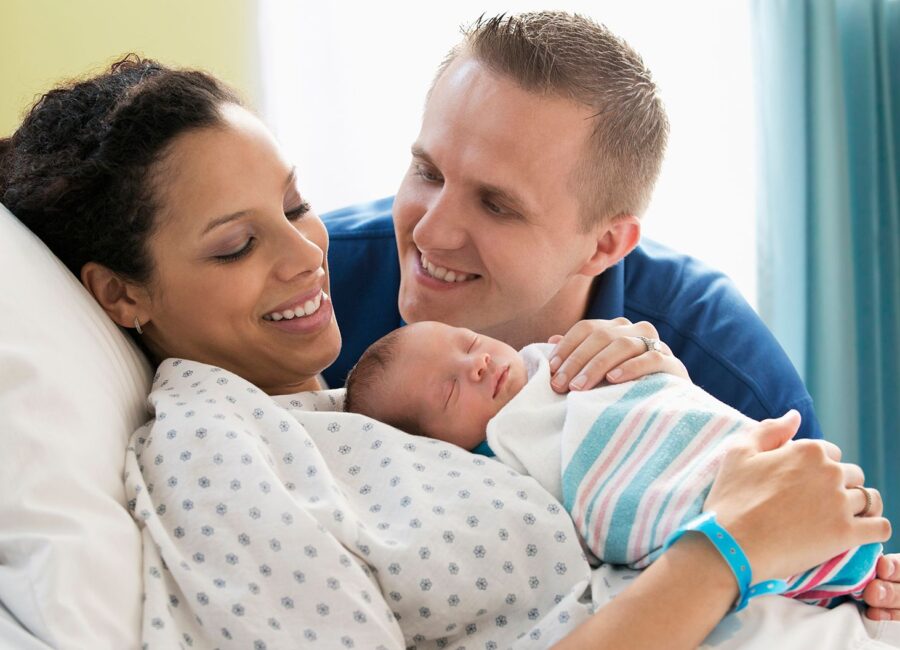
Understanding parenting for new parents can prevent panic, stress, and depression when taking care of a newborn.
Parenting science is not general knowledge that you get in school or college. It often requires prospective parents to do what they think is suitable based on references that are sometimes inappropriate.
Becoming a new parent thanks the presence of a child will bring up many emotions at once. The majority of couples will feel happy and excited about taking care of their baby, but at the same time, they will also experience physical exhaustion, stress, and depression.
What parenting skills can you learn before the birth of a baby to avoid these things? Here is the discussion.
What is parenting?
Parenting is a science that deals with the pattern of education and parenting of children. At the same time, parenting aims to create interaction between parents and children to support physical, emotional, social, intellectual, and spiritual development.
Parents need to learn to parent to educate children at home becomes smoother and not haunted by doubts.
Parenting for new parents

The key in parenting for new parents is to balance time to care for the baby with keeping yourself and your partner sane. In general, parenting invites parents to give the best for their children.
It can also increase the knowledge and skills of parents in caring for, nurturing, and educating children. Therefore, parenting is an important thing to learn. Although it is not an easy thing, there are some tips that you can try, namely:
Don’t hesitate to ask for help
One of the parenting tips that parents need to know is not to hesitate to ask for help. Taking care of a newborn is very tiring, so it is highly recommended that you have reinforcements to take turns taking care of the baby. This assistance can come from spouses, parents, relatives to hire the services of a particular baby nurse, aka a babysitter.
Keep your health
The parenting system can’t run flat if you can’t take care of yourself. Therefore, consume nutritious food or any food or drink. Don’t think about losing weight first. Try always to get enough sleep to avoid physical and mental illness.
Putting ‘me-time’
To maintain mental health, make time to occasionally watch movies, exercise, or talk with friends without having to take care of the baby for some time. Ask your partner to take turns babysitting while you spend some “me-time” undisturbed.
Involving a partner
Taking care of a baby is a shared task. Always involve your partner in everything, including determining the parenting style in the family.
Common mistakes in new parents

Every couple has a different style and parenting. However, most parents make the same common mistakes in their first year as new parents. It is importance of parenting for new parents to avoid these mistakes. Recognize the various common errors of new parents so that you and your partner can prevent them.
1. Want to be a perfect parent
Give birth usually or through routine surgery to be a good parent. It’s the same when you decide to give formula milk when breast milk (ASI) has not come out for various reasons.
Every parent wants to be the best for their baby, but remember that no parent is perfect. You have to do the best within your capabilities so that your baby grows up healthy, both physically and spiritually.
2. Worrying about everything
New parents worry about everything related to babies because they don’t have enough parenting knowledge or even find parenting knowledge in the wrong place. Is the baby drinking enough milk? Is the stool too runny? Did he cry out of thirst or despair? Etc.
This worry often makes new parents go back and forth to the hospital because of usually complaints about babies. Excessive worrying can also ruin your beautiful moments with your newborn.
3. Believe in unproven myths
An example of a common myth is, have you ever thought that babies signify their intelligence will increase? It is a myth because fever in babies can be a sign of an emergency, only experienced by babies under three months with a body temperature above 38 degrees Celsius. In this condition, they should take the child to the doctor immediately.
The only fever that should occur is increased body temperature 24 hours after immunization. To find out if you have a fever or not, measure the baby’s temperature with a thermometer, not just the palm or the back of the hand.
4. Thinking spit up is vomiting.
Vomiting can indeed signify an infection in the baby’s stomach and is characterized by gushing discharge from the mouth. While spitting, is milk discharged from the baby’s mouth as when he pees. It usually happens after the baby is fed.
5. Ignoring a partner
Taking care of the baby will take over most of your time with your partner. However, keep trying for you and your partner to have time together, for example, when the baby is sleeping.
6. Exploring parenting knowledge from inappropriate sources
In the era of digitalization with the proliferation of fake news, you must be more selective in digging up information about parenting.
Talk to the doctor if you’re feeling stressed, depressed, or always around your baby. These feelings can signal the baby blues or even postpartum depression, which, if not treated immediately, can be bad for the baby’s mother.
The impact of bad parenting
If parenting knowledge is not applied correctly, it can negatively influence parenting styles. As they get older, children who do not get a good education and upbringing will show some destructive behaviors, such as:
- Have low self-esteem
- Behaving antisocial
- Often cries and is easily startled
- Unable to face difficulties alone
- Has explosive emotions
- Lack of empathy
- Difficult to establish relationships such as friendships.




